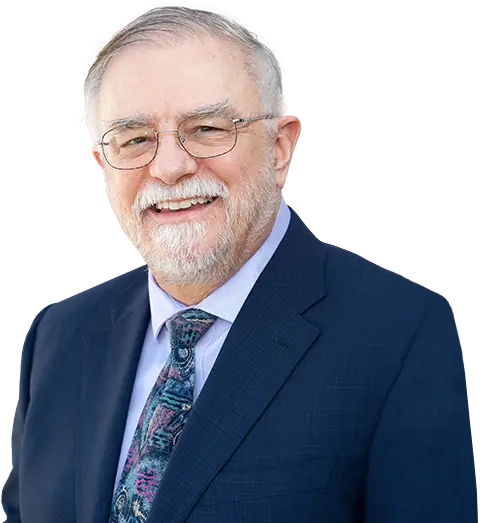Bankruptcy Litigation For Creditors
If you are a creditor who is trying to collect an outstanding debt, it is frustrating receiving notice of the debtor’s bankruptcy filing. However, that filing does not necessarily mean that your hope of repayment is lost. You have rights, and with proper legal representation you may have options to secure partial or full repayment.
Contact the Law Offices of Nicholas Gebelt immediately. With the right facts we will challenge the discharge of the debtor’s debt to you. In Chapter 11 and 13 cases, we will maximize the plan repayments to you.
We will investigate issues involving fraudulent transfers, discharges obtained by misrepresentation, and the effect of community property laws on nonexempt assets. If there is a legal way to secure repayment in bankruptcy, or vacate the discharge injunction, we will find it.
The Law Offices of Nicholas Gebelt represents creditors in bankruptcy litigation. This includes successfully challenging plans of reorganization, getting bankruptcy cases dismissed, and getting judgments determining that a debt is nondischargeable. We have extensive experience prosecuting motions to lift the automatic stay, litigating claims, and objecting to confirmation. We’ll work closely with you, putting our experience to work to maximize your recovery.
- Petitioning The Court To Lift The Automatic Stay
A debtor’s filing for bankruptcy protection, triggers the automatic stay that stops most creditors from proceeding with debt collection efforts while the debtor’s case is pending. For example, creditors cannot repossess a vehicle or conduct a foreclosure sale, unless the Bankruptcy Court enters an order lifting the stay. In appropriate circumstances, we prosecute motions for relief from the automatic stay on behalf of our clients.
Some examples may include:
- Debtor Is Not Paying On A Secured Debt: If the debtor has a debt that is secured by collateral — e.g., a home mortgage or a vehicle loan — then the debtor must either pay it, or return the collateral. If the debtor is not paying a secured debt, then the creditor, whether a mortgage lender, a vehicle finance company, or a similar party has standing to prosecute a motion for relief from the automatic stay as a prelude to recovering the asset. We prosecute such motions.
- Lack of Collateral Protection: A secured creditor can prosecute a motion for relief from the automatic stay if the collateral is not adequately protected. Examples of inadequate protection include the debtor allowing the insurance to lapse, or failing to maintain the collateral. We prosecute such motions.
- Unrelated State Court Litigation: If a creditor has a lawsuit pending in the California Superior Court against the debtor, the creditor can move the Bankruptcy Court to lift the stay so that the creditor can proceed with the state court litigation. We prosecute such motions. Note: It is very important to initiate an adversary proceeding in the Bankruptcy Court to challenge the discharge of the debt. Otherwise, the debt may be discharged when the Court grants the debtor a discharge. It would indeed be a pyrrhic victory if the creditor were to win the state court litigation, but end up being unable to collect on the judgment due to the discharge. We prosecute all kinds of adversary proceedings, including discharge challenges.
- Abandoned Property: If the debtor no longer wishes to retain real property, the mortgage holder must have the automatic stay lifted before proceeding with foreclosure. We prosecute such motions.
- Objection To Confirmation Of The Debtor’s Plan
When a debtor files for Chapter 11 or 13 bankruptcy protection, the debtor will propound a repayment plan that the Court must confirm. Before the Court confirms the plan, you—the creditor—have the right to review the plan and object to it if it does not adequately protect your interest. You must be proactive in protecting your rights. Unless you object, the plan will be confirmed, and it will be binding on you. To increase your chances of success with this type of action, it is best to work with an experienced creditor’s rights attorney.
Common reasons for objections to confirmation include:
- Understated Repayment Amount: Banks, mortgage lenders, second mortgage lenders, and other mortgage holders often object to the plan on the grounds that the proposed arrearage amount is understated.
- Understated Collateral Value: Vehicle loan lenders, equipment lenders, and other finance companies with loans secured by personal property may file an objection to confirmation because the repayment plan understates the value of the secured collateral.
- Insufficient Monthly Payments Amounts: When the loan amount or collateral value is understated, the monthly payment amount will most likely be insufficient to cover the balance of the loan.
If the facts warrant it, Mr. Gebelt can negotiate with the debtor or debtor’s attorney to protect your rights. Otherwise, he must file an objection to confirmation of the debtor’s plan with the bankruptcy court.
- Defending Against Claims of Violating the Automatic Stay
The consequences of violating the automatic stay can be unpleasantly expensive. If your violation was inadvertent or, under the circumstances, justified, we can defend you.
- Working With Other Creditors
When a key customer files for bankruptcy protection, should you cooperate with other creditors—or compete with them? The answer depends on the specific facts of the case. Mr. Gebelt will guide you to best achieve your goals.
In sum, Mr. Gebelt is dedicated to the highest level of client satisfaction by doing everything in his power to achieve his clients’ goals. He’ll stay in regular contact with you from start to finish, and will provide frequent updates, so that you are always kept up-to-date on how your case is proceeding.

Call For Your Free 20 Minute Phone Strategy
Session: (562) 777-9159
No pressure. We’re friendly and easy to talk to.



